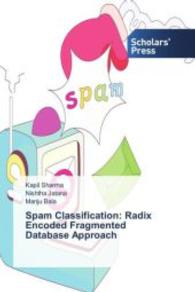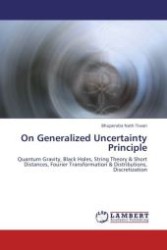- ホーム
- > 洋書
- > 英文書
- > Philosophy
Full Description
In an age of internet scrolling and skimming, where concentration and attention are fast becoming endangered skills, it is timely to think about the act of reading and the many forms that it can take. Slow Philosophy: Reading Against the Institution makes the case for thinking about reading in philosophical terms. Boulous Walker argues that philosophy involves the patient work of thought; in this it resembles the work of art, which invites and implores us to take our time and to engage with the world. At its best, philosophy teaches us to read slowly; in fact, philosophy is the art of reading slowly - and this inevitably clashes with many of our current institutional practices and demands.
Slow reading shares something in common with contemporary social movements, such as that devoted to slow food; it offers us ways to engage the complexity of the world. With the help of writers as diverse as Nietzsche, Wittgenstein, Woolf, Adorno, Levinas, Critchley, Beauvoir, Le Dœuff, Irigaray, Cixous, Weil, and others, Boulous Walker offers a foundational text in the emerging field of slow philosophy, one that explores the importance of unhurried time in establishing our institutional encounters with complex and demanding works.
Contents
Acknowledgements
Preface: Why Slow Reading Today?
Posing the Question: what is it to read?
About the Chapters
Introduction: On Being Slow and Doing Philosophy
The Love of Wisdom and the Desire to Know
The Play Between the Instituting and the Instituted in Philosophy
Philosophy as a Way of Life: Slow Reading - Slow Philosophy
Resisting Institutional Reading
1 Habits of Reading: Le Dœuff's Future Philosophy
Philosophy as Discipline
Philosophy's Old Habits of Reading
How Men and Women Read
Teaching Reading: Sadism, Collaboration?
Le Dœuff's Habits of Reading
A Philosophy Still to Come: Open-ended Work
Habits of Slow Reading
2 Reading Essayistically: Levinas and Adorno
Emmanuel Levinas: An Ethics of Reading?
Institution and Instrumental Reason
Theodor W. Adorno: The Essay as Form
Luiz Costa Lima: Criticity and the Essay
Hans Ulrich Gumbrecht: Reading for "Stimmung"
Robert Musil: Essay, Ethics, Aesthetics
3 Re-reading: Irigaray on Love and Wonder
Psychoanalysis, Listening, Attention
Irigaray's Diotima: The Arts of Philosophy, Reading, and Love
Descartes's "Passions of the Soul": Irigaray's Wondrous Reading
Love and Wonder: Reading
4 The Present of Reading: Irigaray's Attentive Listening
The Nobility of Sight: Hans Jonas
Listening-to: Luce Irigaray's Way of Love
The Present of Reading: Friedrich Nietzsche and Others
5 Romance and Authenticity: Beauvoir's Lesson in Reading
Romantic and Authentic Love
Reading and Love
Authenticity as Ethics?
Returning to Beauvoir: How does she read?
Le Dœuff's Reading of Beauvoir's Reading of Sartre: "Operative Philosophy"
Rethinking "Operative Philosophy" with the help of Beauvoir's Own Categories of
Romance and Authenticity
Beauvoir Reading the Couple: "Sartre and Beauvoir"
6 Intimate Reading: Cixous's Approach
A Desire resonant with Love
Cixous Writing: "Entredeux"
Writing as Gift and Generosity
Generosity, Love, Abandon
Cixous Reading: Intimacy, Giving
The Approach: A slow passage between the self and the strangeness of the other
Cixous and Irigaray: extreme proximity?
The Gifts of Abandon and Grace: An ethics of reading
Conclusion: The Attentive Work of Grace
Simone Weil: attention to gravity and grace
Martin Heidegger: rapture (Rausch) and meditative thinking
Reading as an Aesthetic Experience
Hans Ulrich Gumbrecht: reading for intensity
Notes
Bibliography







